Western cities were largely created to accommodate cars and with this came the huge boom in retail parks and shopping malls across Britain and the US. Shopping and cars are both changing, though. Tesla boss Elon Musk predicted last year that cars wouldn’t have steering wheels in 20 years – and it feels a bit like the wheels have come off Britain’s bricks-and-mortar shops.

From the merger of Sainsbury’s and Asda to the deaths of Toys R Us, Maplins and of course BHS, retail hasn’t been out of the headlines for years now. So it was no surprise to hear about intu’s plans to make a big push into the private rented sector (PRS) to drive value from its sites.
Much of the downward pressure on retail is due to people having less time, wanting more unique experiences and, above all, doing more shopping via their laptops, phones and tablets. These are precisely the same pillars of consumer experience that sit behind Moda – a rental company designed to be a lifestyle brand that can enhance the way people of all ages live in cities.
Find out more - Intu CEO hails ‘double benefit’ of PRS move
Cultural shifts around how we want to spend our time and where affect every part of society, and just as retail needs to focus more on experience and community, the same very much goes for homes. This is why billions of pounds of institutional investment is pouring into the sector. The attraction of a defensive asset-like residential – largely seen as a hedge against inflation due to the way residential rents have performed historically – is high, particularly given current volatility across the global economy.
After reading @DavidParsleyPW takeaways from exclusive interview with David Fischel on @intugroup's move into PRS (https://t.co/GtIOyX4xjF) we want YOUR VIEWS:
— PropertyWeek (@PropertyWeek) October 25, 2018
Will other mall owners follow intu and @CapRegPLC’s lead in diversifying into residential?
Yet with Amazon on the rise and Alibaba not even here yet, simply installing a few barbers and more coffee shops won’t save shopping malls. There needs to be a full-scale reshaping of the retail property environment – and that’s where I see huge potential for partnerships with build-to-rent brands such as Moda.
There will be swathes of well-connected, brownfield sites that could be redeveloped, providing an immediate source of footfall for retail and leisure businesses. And vice versa, this would maintain investment values at a time when values are being dumped faster than contestants off Love Island.
Our investment platform is already delivering a £2bn pipeline of build-to-rent schemes right across the UK.
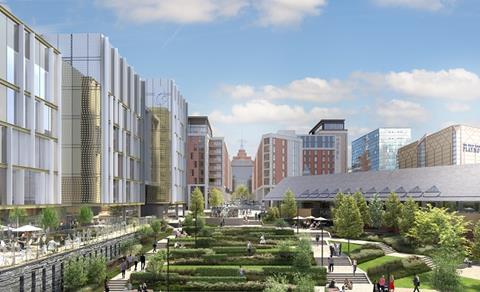
Everyone is in agreement that mixed-use development is the future because of the variety of experiences it offers end users, but also because of the financial sense it makes. By blending build-to-rent with retail, inward investment can be supported thanks to the far higher values residential development carries. This will help underwrite or subsidise other areas of the development that might be struggling at the moment.
Prime for resi-led mixed-use conversions
While many retail parks won’t be suitable for purpose-built rental housing thanks to their location on the outskirts of towns and cities, next to busy motorways, they would no doubt make perfect sense for the future growth of budget or business hotel operators that serve customers primarily looking for affordable convenience.
However, some retail parks are prime for residential-led mixed-use development. Many of the retail parks currently struggling are found in cities and towns and have huge footprints. When blended with build-to-rent, these sites, which once housed Toys R Us and humoured DFS’s eternal sales, would make sizeable contributions to urban housing targets, delivering much-needed homes on brownfield sites in areas that are already incredibly well connected to the wider fabric and infrastructure of the area.
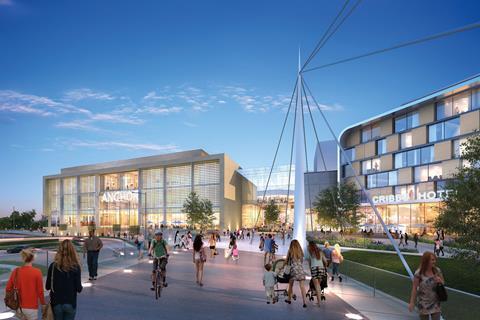
Combine this with elements of last-mile logistics – perhaps with electric-only delivery vehicles – and there’s no reason why former retail locations can’t now switch uses and benefit from booming ecommerce markets.
As the world of traditional retail shakes, developers need to wise up on how sites and spaces can be better utilised for greater financial stability and returns. The rise of ecommerce has proven that not only is the customer always right, but that convenience – as well as cash – is now king.



























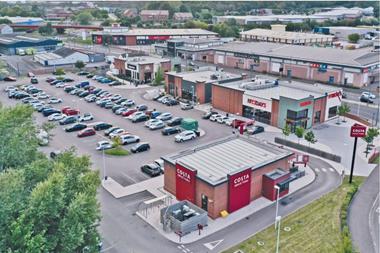
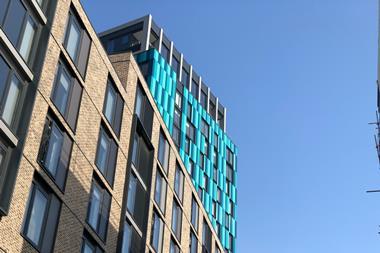
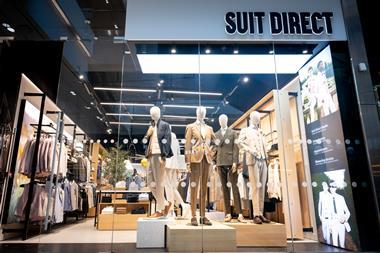
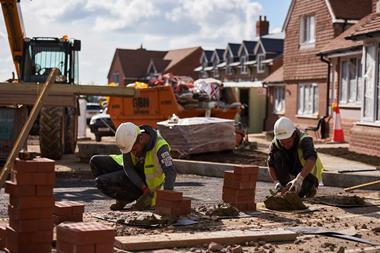

No comments yet